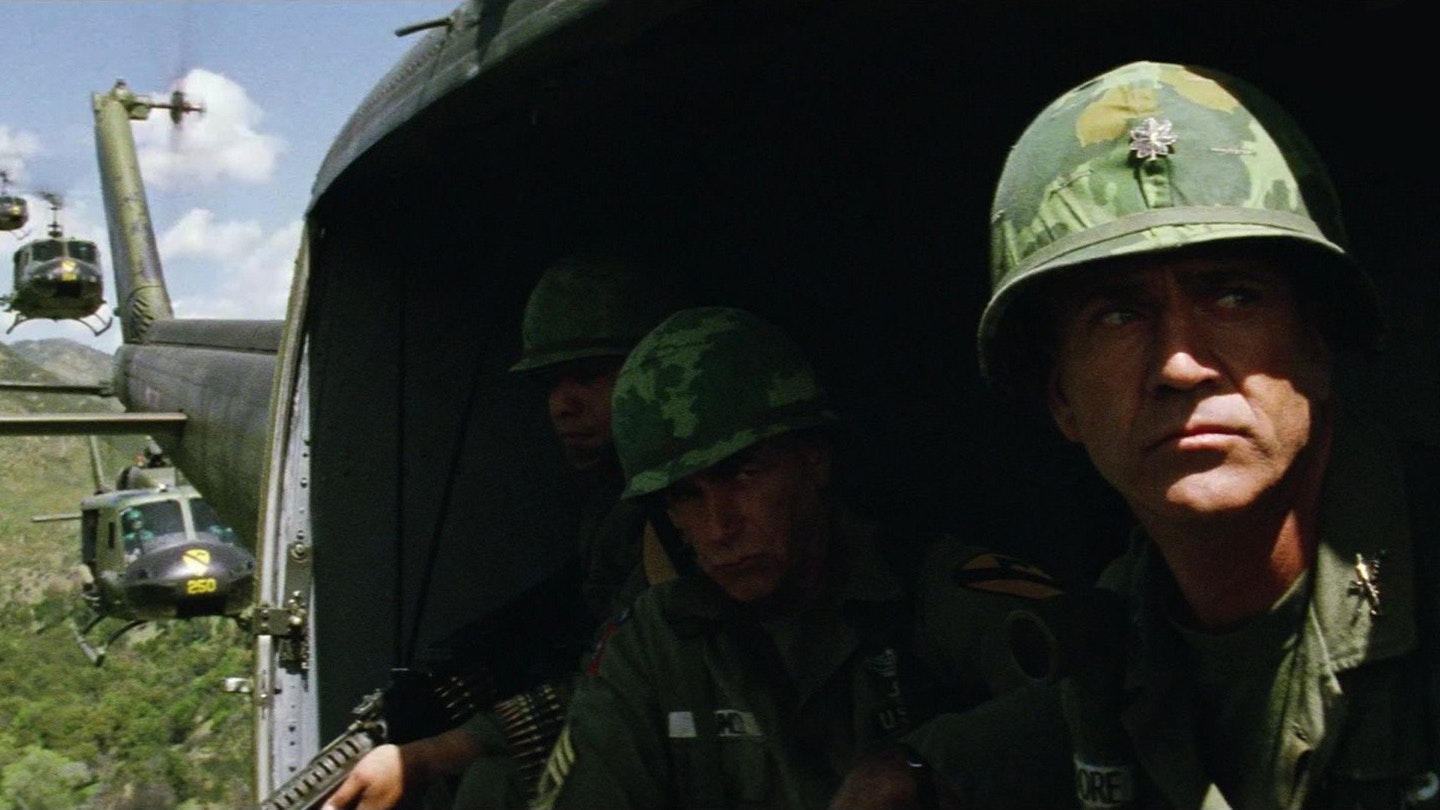Remember the dancefloor foot-stomper, War, What Is It Good For? Well, its good for Mel Gibson, thats for sure.
Having already cut a swaggering swash through two World Wars, the American Revolution and Scotlands 13th-century uprising, hes still warrior of choice and fighting fit for duty in Vietnam.
Burly, foursquare, patriotic and paternal, Gibson is completely credible as Moore, the seasoned paratrooper, devout Catholic and Harvard intellectual thrust against his judgement and sense of history into the no-win nightmare of Vietnams Central Highlands.
Most combat dramas of the last 40 years after the scores of World War II commemorative guts and glory heroics have effectively been anti-war, sharing the conviction that, no matter which war, it is hell.
This film, based on true events that helped shape the next ten tragic years in Vietnam (and brought forward from its summer release while fascination in military action is running high), may have little to add, but does what it does well and holds strong human interest.
Like Black Hawk Down, it is no jingoistic victory dance, but a tribute to the each other is all we have ethos. Action centres on the three days in which 450 U.S. soldiers of a new experimental combat division (and the photo-journalist whose anguished images would split a shocked America) were surrounded by 2,000 PAVN regulars.
With post-Saving Private Ryan terror, gore and aural assault now de rigueur, Randall Wallace writer of Braveheart and, oops, Pearl Harbor mixes unflinching horror with the time-honoured elements laid down in John Fords cavalry pictures and Lewis Milestones All Quiet On The Western Front.
This means following a sympathetic set of intimates in this case including Gibsons CO, Elliotts irascible sarge, Kleins idealistic platoon leader and Kinnears maverick chopper pilot.
The modernity of the mayhem and the traditional storytelling vocabulary create an emotional eloquence. More routine are transitions between the battle, the whupping choppers and lots of tango-foxtrot-niner speak back and forth to the home fort, where soldiers wives keep weepy vigil, and to Intelligence H.Q. in Saigon, where perspiring strategists rail at the prospective propaganda disaster. Lose a load of draftees, its a bad week, they say. Lose a colonel, its a massacre!
Above all, its Gibsons gutsy study as a macho-but-sensitive leader honouring his matter-of-fact pledge to go where the metal meets the meat who holds the ground in another well-crafted account of a remorseless undertaking, in which good men die, ordinary men summon unbelievable courage, and no-one can ever satisfactorily explain why they have to.
